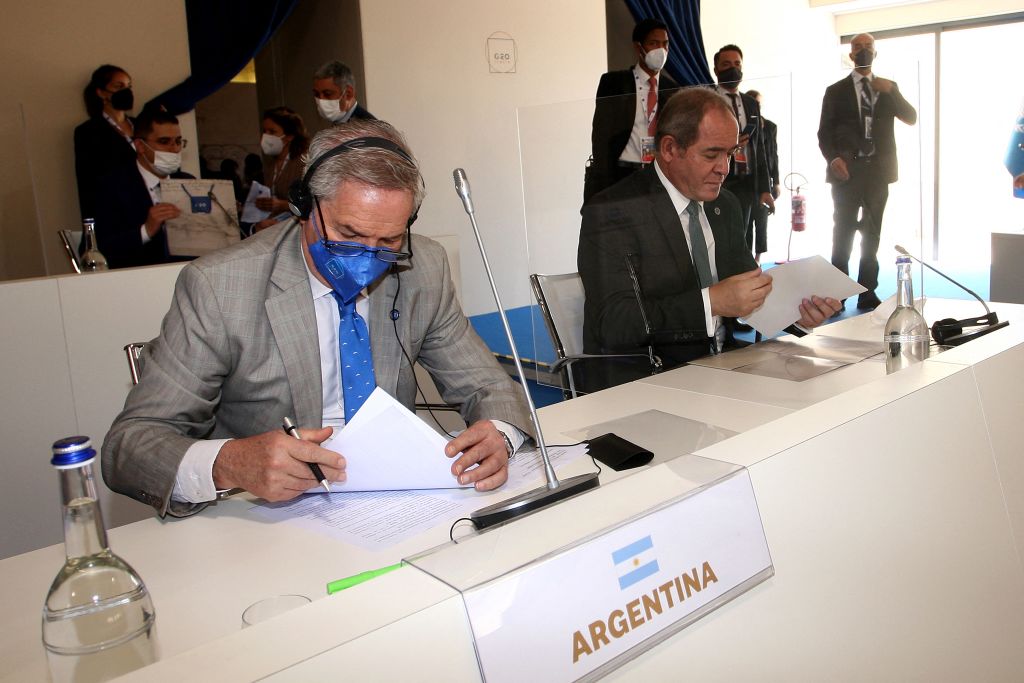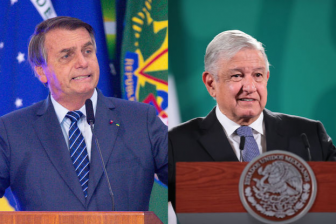On July 1, the OECD Inclusive Framework announced that 130 countries had agreed to a global minimum tax of at least 15% and a new reallocation of taxing rights to market countries. The proposed deal is a missed opportunity to truly end tax avoidance by multinationals and generate meaningful revenues to support governments in their fight against the pandemic and the post-COVID recovery.
The outcome of this negotiating process is particularly relevant to Latin America which relies more heavily on corporate tax revenue and has thus been hit harder by multinationals’ tax avoidance, which results in global revenue losses of at least $240 billion each year –$40 billion for Latin America alone.
All the Latin American countries participating in the negotiations signed up to the agreement, except for Peru. Despite that, most Latin American countries share major concerns.
The first concern relates to the proposed minimum tax rate of at least 15%, which is too low – and indeed close to the rates in tax havens like Switzerland and Ireland. This reflects a preference by several countries to protect their own multinationals rather than follow the lead of U.S. and Argentina, which have publicly called for a minimum tax rate of at least 21%.
Moreover, under the current proposal, the majority of the additional tax revenues will go to multinationals’ home countries, not to the so-called source countries where these firms generate profits. Unsurprisingly, the developing countries, represented in the negotiations as a group by the G-24, want source countries to have priority in applying the minimum tax, particularly in respect of payment of interest, royalties and capital gains, in order to protect their tax base. Giving priority to global corporations’ home countries will reinforce rather than alleviate the unfairness already built into the current international tax system.
How much revenue the minimum tax generates will depend on the rate. A recent study by the EU Tax Observatory estimates that a 21% minimum rate would generate an additional $118 billion (€100 billion) of corporate income tax revenues in 2021 for the 27 European Union countries, while a 15% levy would yield half that amount.
The difference is even starker for countries in Latin America: With a 15% tax rate, Mexico and Brazil stand to gain an additional $600 million and $1.1 billion, respectively, compared to $1.1 billion and $4 billion with a 21% rate, and $1.5 billion and $8.8 billion with the 25% rate advocated by the Independent Commission for the Reform of International Corporate Taxation (ICRICT).
Latin American countries had an average corporate tax rate of 26% in 2020, so a global minimum rate of around 15% is simply too low and thus unlikely to lead to a significant reduction in profit shifting from the region. However, the agreed rate is “at least 15%” which means countries can unilaterally introduce a higher minimum rate.
The second part of the agreement introduces a formula to apportion multinational companies’ global profits for tax purposes. However, the proposal would apply only to very large firms, those with global turnover above $22 billion (€20 billion) and with global profit margins of at least 10% of revenue. Furthermore, only between 20% and 30% of their so-called “residual” profit exceeding that 10% would be subject to tax in the countries where it is generated.
Although this new rule would affect U.S. tech giants like Apple, Facebook and Google, it may end up being applied to only a tiny fraction of the global profits of 100 or so of the largest multinationals. This means that the measure will generate little additional revenue, perhaps less than $10 billion globally per year. As part of agreeing to the deal, countries will also be asked to remove unilateral measures such as digital services taxes.
The G-24 has demanded a bigger reallocation of global profits, with the reallocation percentage ranging from 30% up to 50% for the most profitable firms. Likewise, the African Tax Authorities Forum, which coordinates the position of its members in the negotiation, has asked for the rules to apply to all multinationals with annual revenues above $300 million (€250 million), and argued that a percentage of all global profits, whether “routine” (core) or “residual” according to the OECD terminology, should be apportioned to the countries where these companies do business.
In fact, it is not possible to distinguish conceptually between the “routine” and “residual” profits of a multinational, as all profits are essentially the result of the firm’s global activities. A simpler solution would be to allocate global profits among countries on a formulaic basis, according to the key factors that generate profit, namely employment, sales, assets and resource use.
Such a rule would help to establish a more level playing field, reduce distortions, limit opportunities for tax avoidance, and provide certainty to multinationals and investors. Instead, the proposed distinction between routine and residual profits reflects a political agreement to avoid a far-reaching global reallocation of taxation and revenues. This ultimately means less revenues for countries in Latin America.
But the July 1 announcement is not the end of the road. This proposal is likely to be endorsed next week by the G-20 but negotiations will then continue, with a final agreement expected in October and implemented in 2022.
Going beyond what is currently on the table requires leadership. Leadership to push for more reallocation of taxing rights to Latin American countries and to commit to introduce an ambitious minimum rate of 21% or more, and to increase the share of profits that can be taxed by countries where multinationals do business. Argentina and Mexico have already made public their support for a rate above 15%, the hope is that Brazil and the other countries in the region can join forces and work together to ensure that multinationals contribute their fair share to the post-pandemic recovery.
—
Ocampo is a former finance minister of Colombia and United Nations under-secretary-general for Economic and Social Affairs. He is a professor at Columbia University and chair of the Independent Commission for the Reform of International Corporate Taxation.
Faccio is Lecturer in accounting at the Nottingham University Business School in the United Kingdom and head of the Secretariat of the Independent Commission for the Reform of International Corporate Taxation.






